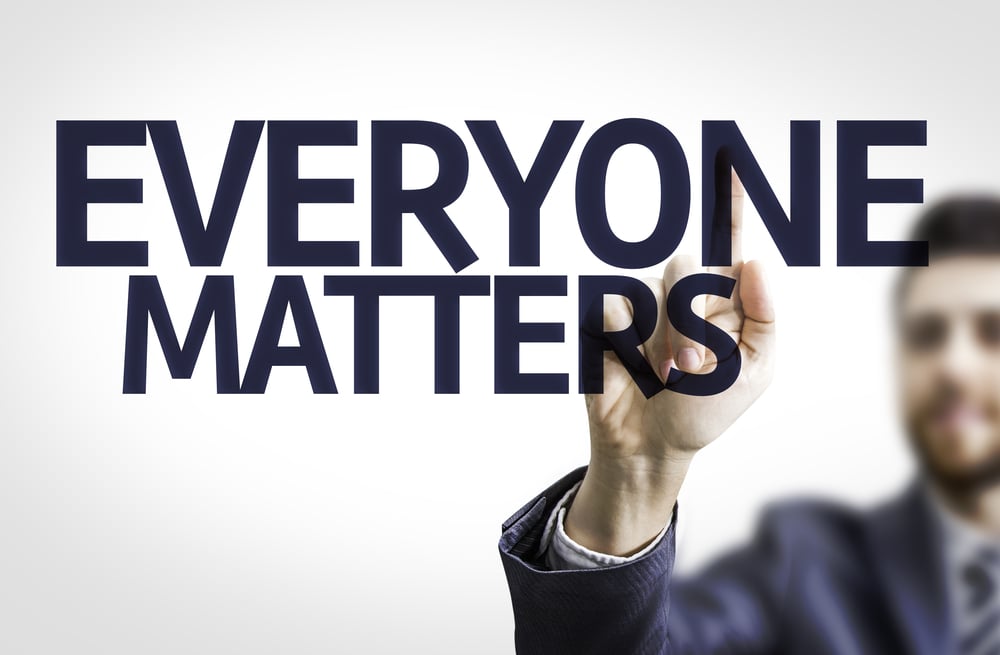How To Deal With DE&I Related Conflict

By Joanne Lockwood, Inclusive Culture Expert and CEO of SEE Change Happen
Mismanaged or poorly handled conflict can result in significant financial repercussions for your business. According to a report by Acas, the estimated annual cost of conflict in the UK amounts to £28.5 billion, but its effects on individuals and the organisational culture could be even more substantial.
Joanne Lockwood, Inclusive Culture Expert and CEO of SEE Change Happen, emphasises the positive aspects of healthy disagreement in the DE&I world and provides valuable advice on effectively addressing conflicts related to inclusion.
CAN WE HAVE HEALTHY DISAGREEMENTS WHEN IT COMES TO DE&I?
Fundamentally, it is essential to acknowledge and respect that people hold diverse perspectives and have unique life experiences. Viewing situations as merely right or wrong can create divisions. History illustrates how societal beliefs have evolved, transitioning from once-accepted discrimination against Black individuals, inequality for women, and prejudice towards the LGBTQ+ community, to now being recognised as wrong in our culture. Such transformations require gradual evolution in people's thinking, not just abrupt revolutions.
A prime example of this is seen in Northern Ireland, where the resolution of conflict came about when all parties sought a new vision, uniting around a common goal for the future. However, representatives must secure support from their communities, or underlying tensions may persist, with extremist minority views needing containment.
Promoting open dialogue and providing space for constructive conversations is crucial, even though some individuals may remain dissatisfied. For instance, the acceptance of trans people has slowly progressed, but disagreements, such as those related to trans individuals in sports, still exist. Striving for consensus on certain aspects while addressing remaining issues later might appear divisive and leave certain communities feeling marginalised. In Northern Ireland, where past divisions have not been entirely resolved, some still believe that the original conflict must persist.
Constructive discussions concerning complex DE&I topics often require careful framing and, at times, the guidance of a skilled facilitator or negotiator to reach a shared objective. When dealing with issues involving mistrust, misrepresentation, and strong emotions, such expertise becomes invaluable in achieving our goals. The initial step involves bringing willing parties together to engage in dialogue.
Ignoring conflict is not a viable solution, but some disagreements may lack a practical consensus. In compromise situations, all parties may feel like they are making sacrifices. It is crucial to acknowledge that we all have different starting points and deeply ingrained beliefs. To move forward, we must release the burdens of past challenges and instead foster a collective vision for the future, navigating that vision together.
By embracing open dialogue, skilled facilitation, and a shared commitment to progress, we can address tricky DE&I subjects in a way that fosters understanding, and collaboration, and ultimately leads to positive change.
VALUABLE RECOMMENDATIONS ON EFFECTIVELY ADDRESSING CONFLICT:
- Recognise if you are privileged and not marginalised.
We need to be very conscious of others’ lived experiences and our own privileges. If you have been marginalised it can be hard to not feel dictated to by someone with privilege or to feel like you don’t really care about them. More often than not indifference comes from not knowing what someone else has had to go through but most of us have our own causes to fight so can feel empathy when we stop to think about it.
- Check yourself for bias and your own reactions.
By gaining self-awareness and comprehending our responses in conflict situations, we can better manage our behaviour and prepare for future encounters. Additionally, several factors such as heightened stress levels, miscommunication, or past experiences shape our perspectives and can influence both our reactions and those of the other person involved. When emotions run high, our ability to think logically diminishes, making it challenging to respond positively to someone attempting to present a more rational viewpoint.
- Workplace culture is everything.
It is vital to create a culture where respect for people’s opinions is held high and where clear ground rules are set out about what is acceptable and what isn’t. Have a framework for boundaries by clearly setting out what the company believes in so anyone can reference that “that is not what we do here”. We need to coexist whilst always having conversations and having the ability to disagree with one another and making sure it is known that each of us is not a threat.
- Ask to hear other's opinions when sharing your own.
Have respect for others’ views, reasons, lived experiences and problems when you would also like to share your own. It is very possible to have a willingness to accept someone’s reasons without having to agree with the final outcome of their belief.
- Anger limits success. Discussion opens the door to success.
Anger creates conflict and is rarely productive. Angry activists are rarely as effective in the workplace as someone who wants to create positive change with respect. Move from a position of anger to discussion and negotiation.
- Victory means someone else is left disadvantaged.
Our natural inclination to win arguments or conflicts can be traced back to our biological need for survival, as unresolved disputes can leave us feeling uneasy. While winning may provide a sense of validation for some individuals, it often overlooks the underlying issues, leaving others feeling disadvantaged. By shifting our perspective and viewing conflicts as opportunities for resolution, all parties involved can experience mutual benefits and satisfaction.
- Look at the big picture.
Share your story, separate the people from the problem and focus on the future rather than the past. People need to feel safe and have a sense of belonging at work. Work can be a sanctuary to create a safe space, educate and learn.
- Celebrate our differences.
During conflict, we often want to try to persuade (or to force) the other to change their mind, attitude or behaviour, rather than educate with dignity about any differences between us. We need diversity because it adds value and helps us to grow. The world outside needs to be represented in the workplace for the good of everyone.
- Check for misleading, parallel conversations.
When we don’t listen or ask questions we may interpret what they’ve said resulting in a conversation edited by our own judgements, perspective, assumptions and biases. This hinders the process of resolving conflicts as it leads to conversations that have been edited and filtered through our own subjective lens which has been shaped by factors such as religious values, beliefs, experience, professional expertise, and attitudes influenced by age, gender, sexuality, and race.
- Know that even when mindsets are deeply ingrained, they can be open to re-education.
Through the practice of empathy and storytelling, we have the power to instigate change and craft fresh narratives that go beyond our existing perspectives. There is no time limit to broaden our knowledge and comprehension, as continuous growth and understanding are always within reach.
- When you need them, invite mediators for mutual support and chairing.
If direct, face-to-face communication is no longer possible and overwhelming mistrust and suspicion have manifested, the human, work culture and financial damage and costs will escalate.




